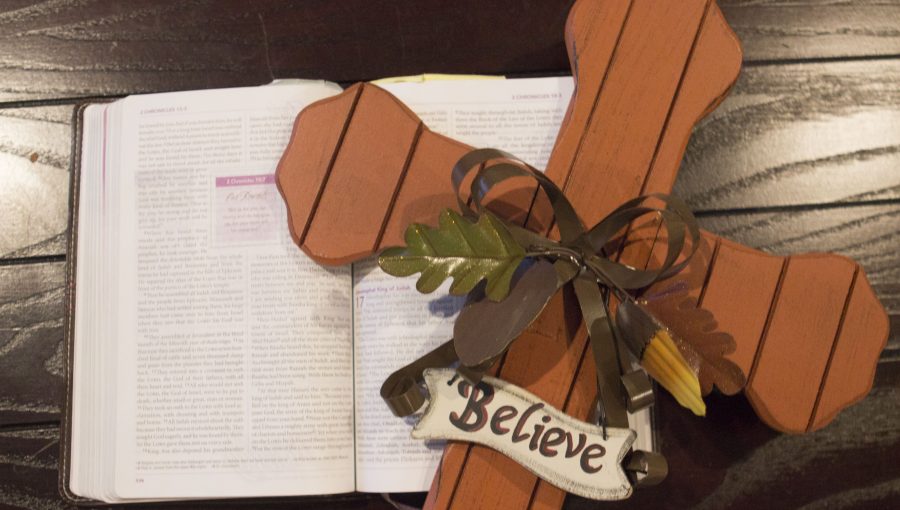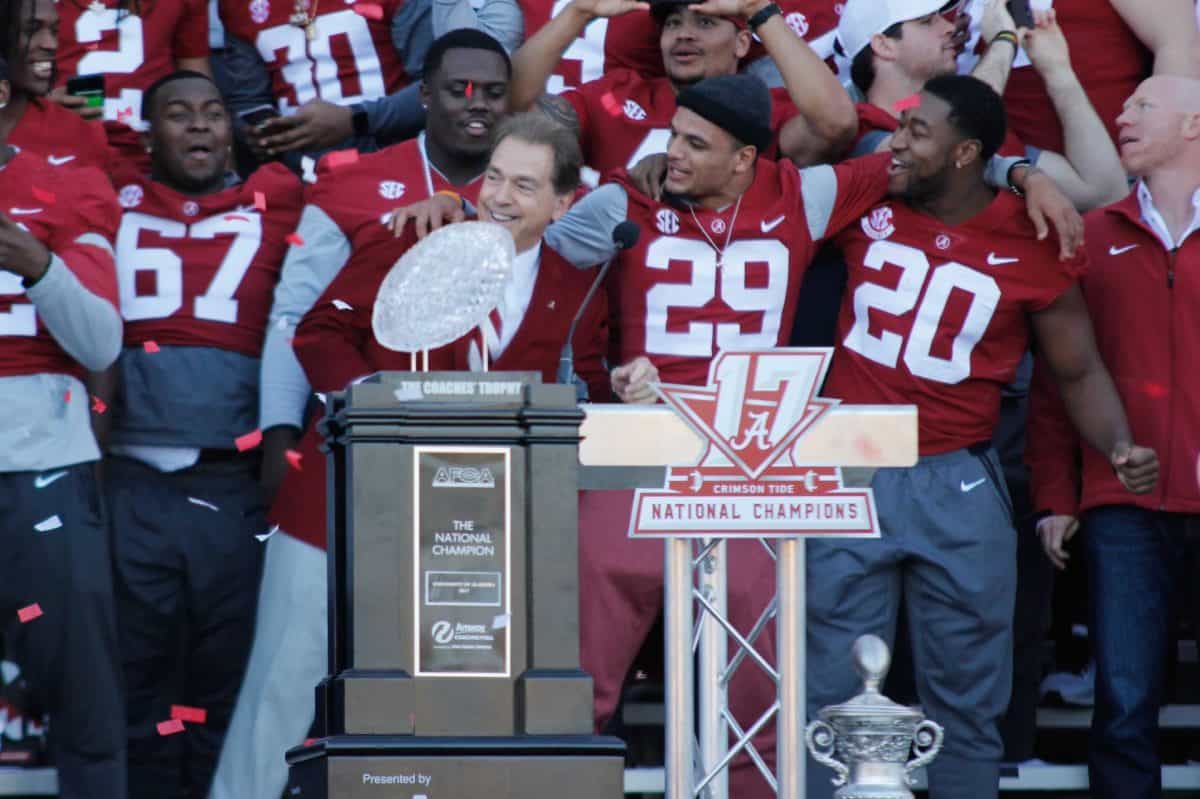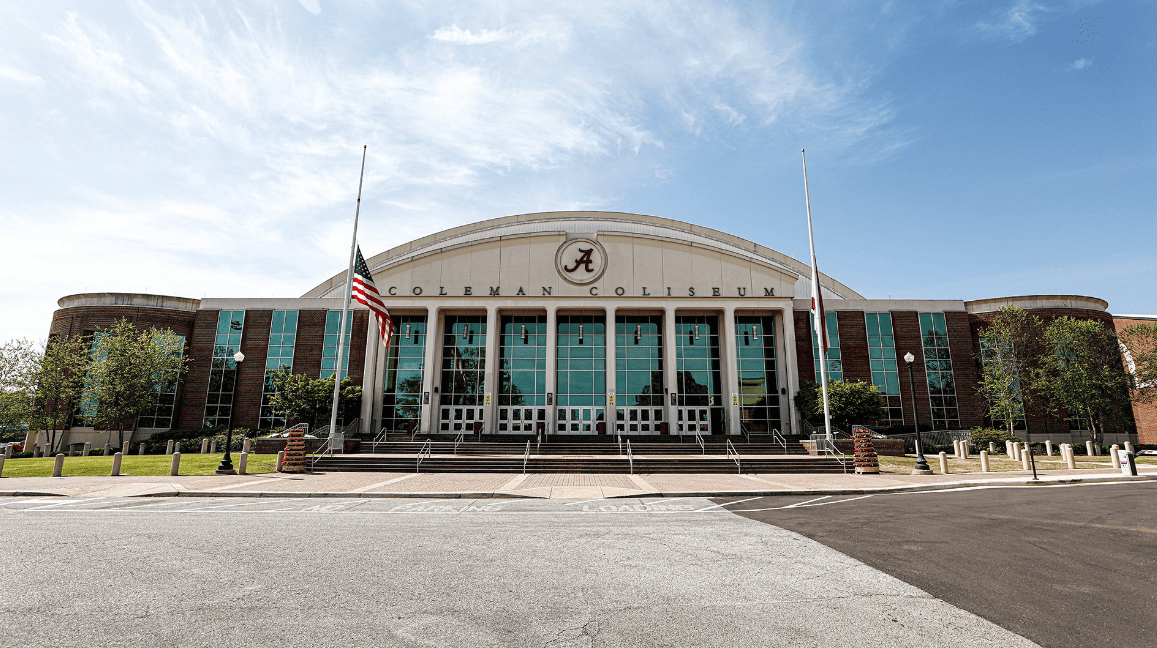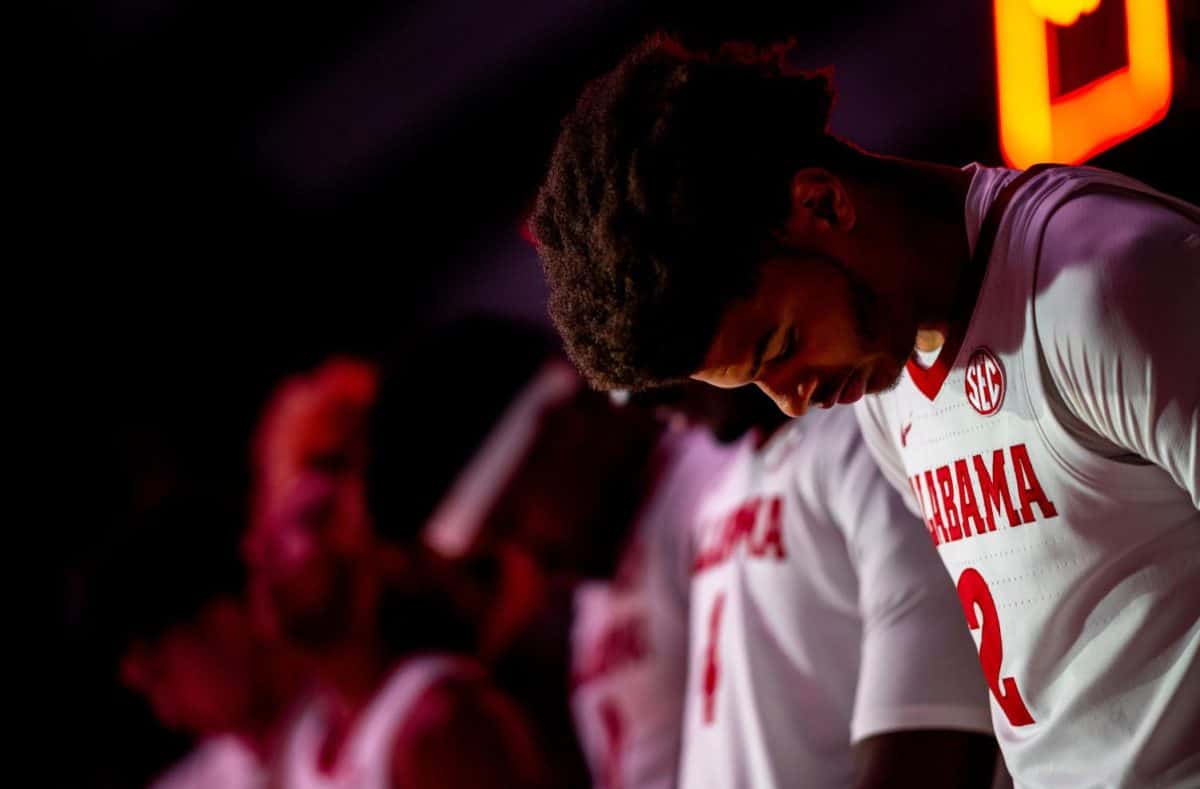Sitting in the pews of his Baptist church in Montgomery, Alabama, a young Ricky Seeber attended church with his family, reading scripture and singing hymns. Over time, however, his attendance at service fell, with his heart never feeling quite into the idea.
This was when Seeber realized religion wasn’t quite for him. Seeber, a senior majoring in biology and German, is an atheist who fell from faith shortly after high school.
“For a long time, I wanted to believe and I tried,” Seeber said. “I tried reading the Bible and going to church … It’s all about withholding belief until you’re convinced of something. I was never convinced. It was more of this rote, ritual thing that I did with my family or I did just by myself even, going to church.”
As a child, he was an active church-goer, attending chapel and Bible study sessions weekly with his family. He spent four years in Enterprise, Alabama, where he attended a Christian elementary school and a non-denominational church.
After moving back to Montgomery, church became less of a regular occurrence in his life. Never feeling moved by the contemporary feel of church, Seeber sought out a more traditional church and stayed in the Methodist faith from ages 12 to 18.
“You see people that post on Facebook, or you know people who are always doing the Lord’s work,” Seeber said. “They go on mission trips and they just feel it in their bones, and I just never felt that for myself. I wanted to, [but] I never did and finally I just stopped.”
Unlike Seeber, Philip Shimel and his family were never much of the religious type. Though his family attended service, Shimel was never a part of his church.
Shimel, a senior majoring in environmental science, also shares atheistic beliefs.
After having a conversation with his parents about his faith, or lack of it, he learned his parents also never had a strong religious background. This revelation came as a surprise to him, and Shimel said the experience was liberating, allowing him to feel like his religious outlook was respected.
Shimel said he felt like the taboo of discussing religion should be broken down, allowing people to express their religious views without fear. He compared his atheistic views to the ramblings of a man who just witnessed a UFO sighting, saying it felt like it was a view no one wanted to listen to.
“The problem with the institution is that the belief system becomes ‘blame the participant,’ and put guilt upon them,” Shimel said. “Like it’s something that you should be ashamed of and fix yourself, you should never doubt the idea.”
Sharing this view, Seeber said he felt as though whenever he expressed a struggle with his faith growing up, the response from others would be negative, with many telling him that he wasn’t trying hard enough or that there was simply a problem with him.
Shimel said he felt like the Christian ideal of asking the Lord for forgiveness was a flawed moral system, one that let those who did wrong simply ask for forgiveness to be absolved. As well as the concept of forgiveness in the church, he found several aspects of religion to be akin to an institution that shunned differing beliefs.
“It’s both like a cultural peer pressure thing of not wanting to stick out, but it’s also that the specific beliefs of the religions we’re dealing with are often ‘you’ll go to Hell if you don’t believe,’ ” Shimel said. “It’s actually really powerful and really frightening if you try to get out of it. You can think about it, but at the back of your mind, it’s like, ‘wow, I could damn my family to eternal torture if I try to leave.’ ”
James Goodlet, an associate pastor for campus ministry at First Presbyterian Church of Tuscaloosa, said he believes that doubting one’s faith is completely normal behavior. But a lot of people struggling with their religious views often feel ashamed and misunderstood by other Christians when they find themselves to be in an unsupportive environment.
Goodlet said he thinks in some cases, people turn away from the church not because they don’t believe in the same things that Christians do, but because they have been mistreated by the church in some way.
“People are often driven away from things because of experience, and the church definitely has a lot to apologize for,” he said.
Goodlet said a lot of Christian beliefs are difficult to understand and that he experiences doubts in his own faith from time to time.
“I think in some ways, I can almost sympathize with them. In no way would I sink to antagonize someone who was not religious,” he said.
For people who are unsure of what they believe in and are considering leaving the church, Goodlet suggested finding a supportive community and looking for places in the world where the church is doing good work.
“Those places are full of both saints and sinners who are doing the best they can to share love,” he said. “Where love is present, there is good work being done.”
Both Seeber and Shimel said they would like to be able to have a sense of community, much like a church congregation, and allow for an open discussion of beliefs.
“I would imagine that if I talked about it, more people would be maybe interested in ‘why do you think that?’ ” Seeber said.







